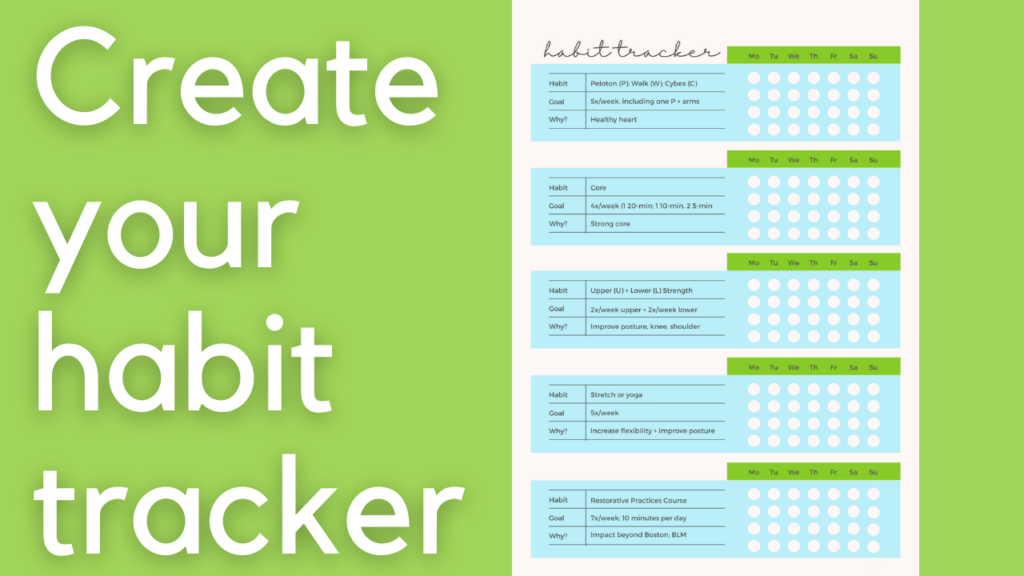
Most of us in education don’t even have a full hour each day to work on achieving our longer-term goals because our days are filled with many small, urgent demands. But I have found that if I break my big goals down into short and small daily actions – I can make big progress over time. In this 16-minute video, I show you exactly how to create a habit tracker that will work for achieving your goals using Canva.
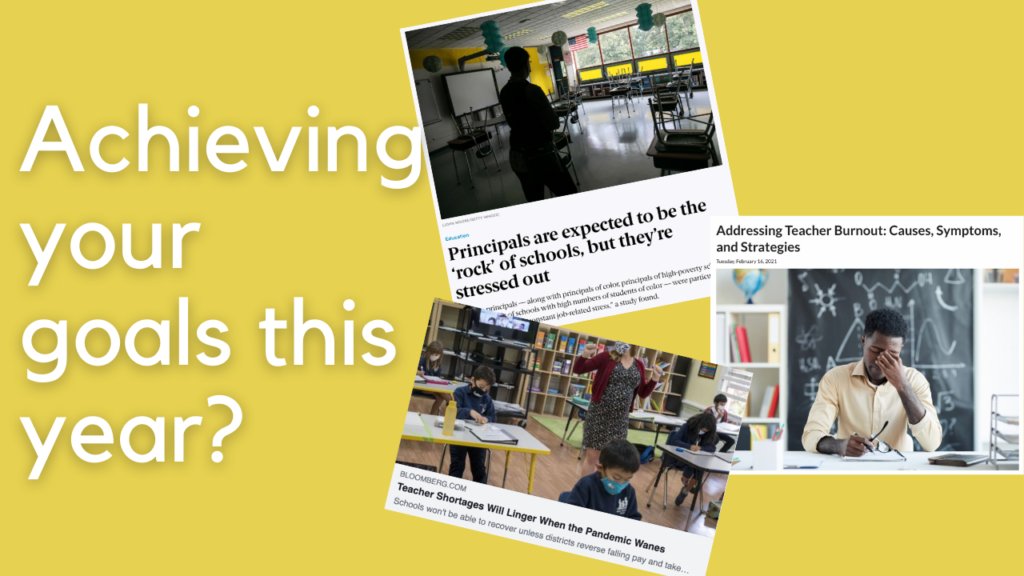
What can goals look like for teachers, school leaders, and educators in 2022? It’s a tough time in the education field, and we might feel like we just have to get through each day or each week. But at the same time, we have to have goals to move forward on what we care about and making progress on our goals helps us be happier. But how do we approach goals and make progress on them during such a challenging time? In this video, I explain the five keys to my success in making progress on my goals.
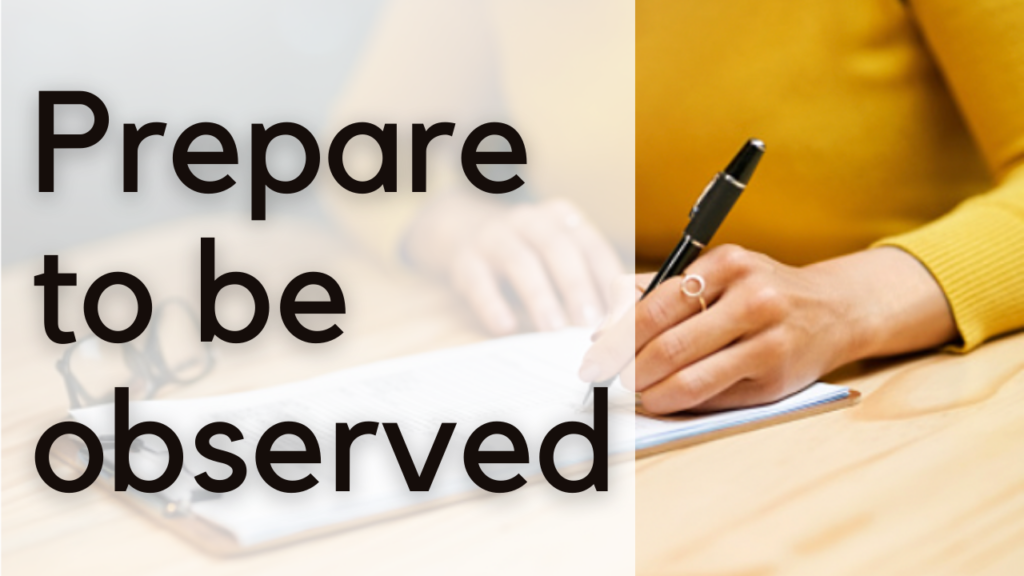
The teacher evaluation process can be stressful, and one of the most stressful parts can be getting observed, especially if you don’t get observed frequently. How do you prepare for this observation? In this video, I explain four steps you should consider taking and share a checklist that you can use to make sure you feel prepared to be observed by your evaluator and have a successful observation.
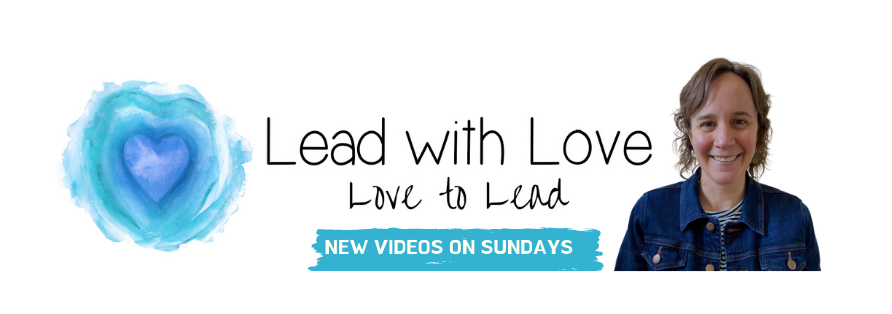
I have a YouTube channel about evaluating teachers. Check out the videos below!

We all have to comply with evaluation due dates, but it doesn’t mean they have to be stressful! Sometimes, you might wonder: how can I write about my areas of growth in a way that doesn’t make me look bad to my evaluator? In this 7-minute video, I guide you step-by-step in how to write a strong self-assessment that you are proud to upload into the evaluation system.
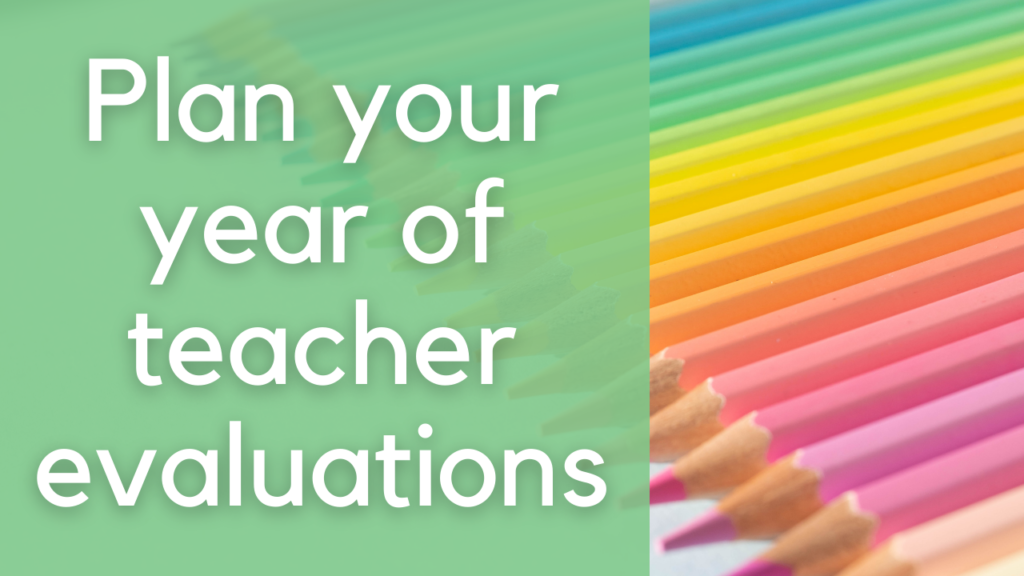
“If you don’t know where you’re going, you’ll end up someplace else,” Yogi Berra said. This is so true with teacher evaluations – many of us don’t take time to think about what our goals and hopes and plans and systems are for the teacher evaluation process, so we end up feeling like the process hasn’t helped us meet our school goals and hasn’t supported our teachers’ growth. In this 11-minute video, I guide you step-by-step with planning for a strong year of teacher evaluations and I also created a guide for the whole planning process.
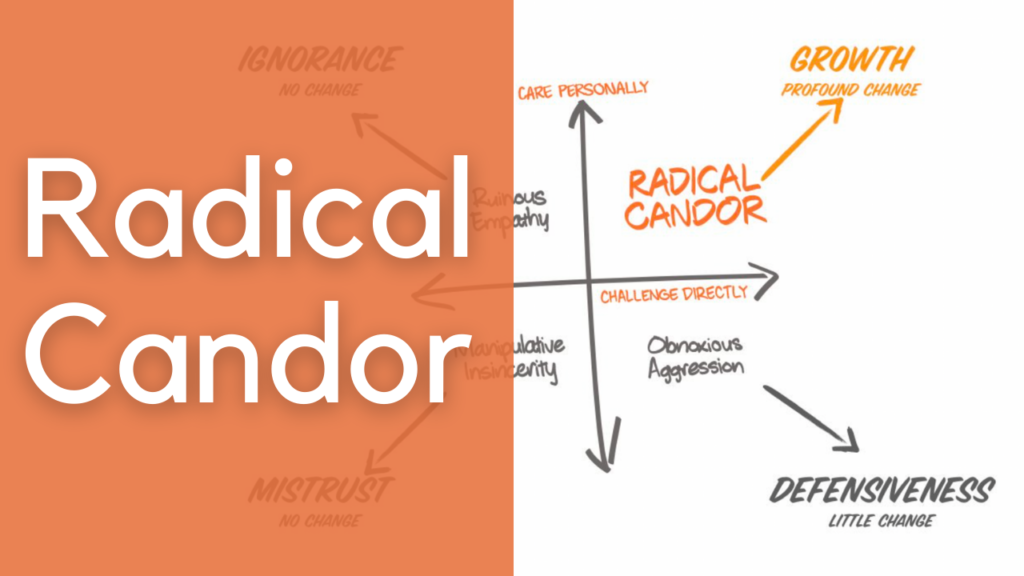
The Radical Candor podcast can help us all build our feedback skills. Kim Scott’s Radical Candor framework explains how we have to both care personally and challenge directly and what can happen if we fail to do one or the other or both. In this 9-minute video, I explain how we can use the Radical Candor framework as teacher evaluators to ensure that our feedback is having the positive impact we intend.

We know that all of us benefit from coaching – from having the support of someone to help us think through challenges we are facing and to provide feedback to help us improve. But in so many schools, there aren’t enough coaches to work with every teacher, so evaluators must fill this important need and provide coaching within the evaluation process. In this 15-minute video, I share my top six tips and strategies for how to create the safety and trust required to coach within the evaluation process.
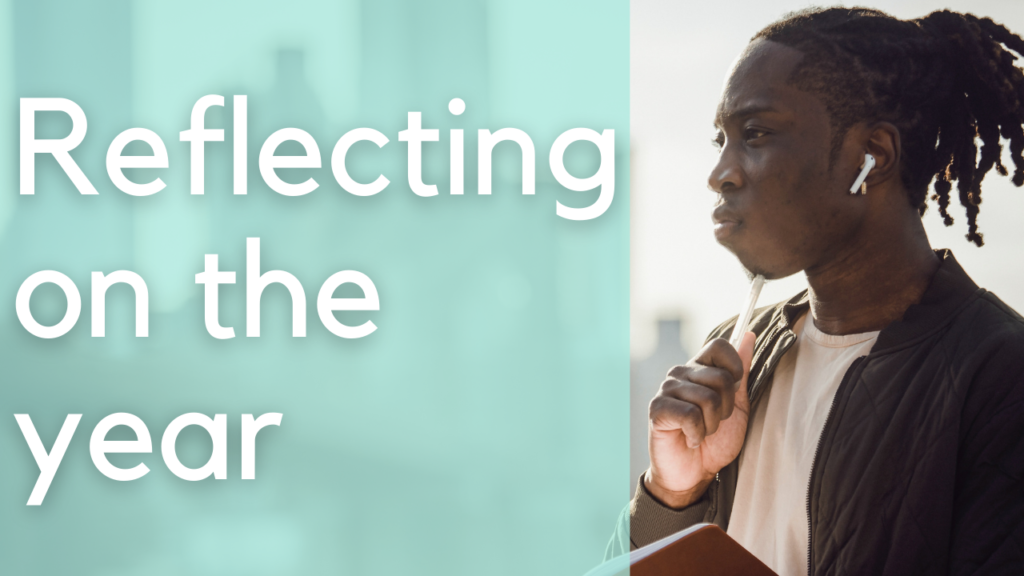
The past 14 months have been full of loss, anxiety, uncertainty, and so, so many challenges. Many of us might want to just put this year behind us and try not to think too much about it. Reflection takes courage. It also offers the opportunity for productive closure, for coming to peace with the year we just experienced, and more than that, reflection offers the opportunity to maximize our own growth. In this 7-minute video, I share ideas and questions to help you reflect on this year, so that you can feel ready for summer.
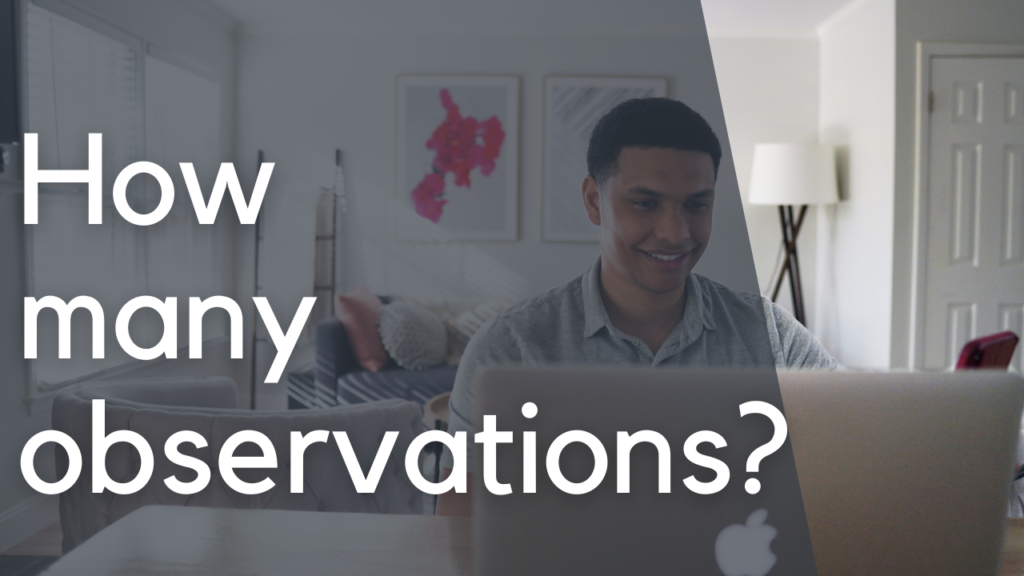
Have you ever felt like you aren’t writing up enough observations? Or have you written up a lot of observations and wondered, “Is this the best use of my time? Is writing up all these observations having a positive impact on teachers and their students?” In this 4-minute video, I explain how my thinking has changed over the years, what I think your goal should be with what you write up, and what I think you should focus your energy on.
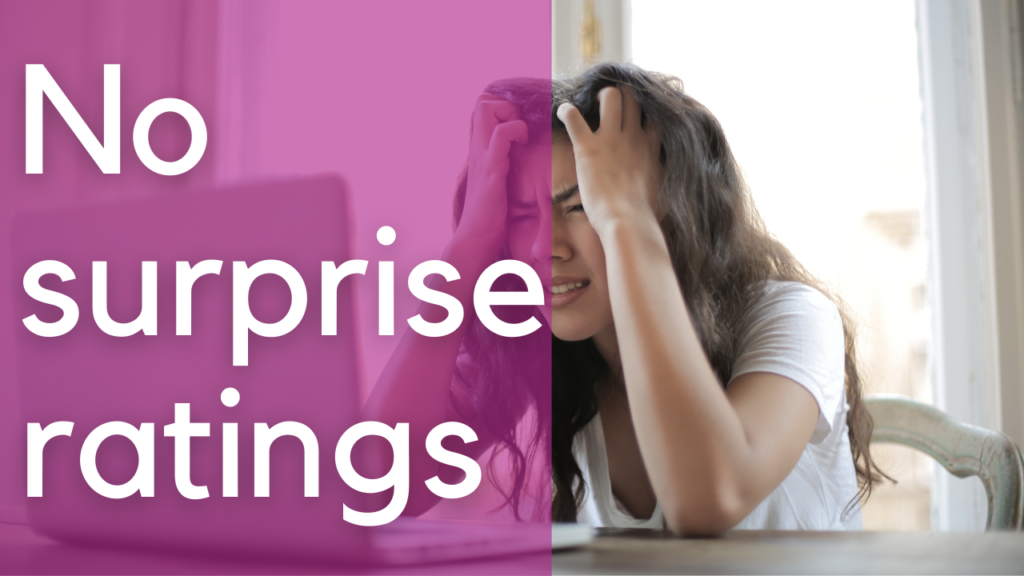
Have you had a teacher be surprised by their ratings on an evaluation? This happened to me when I first became an evaluator, and I didn’t expect it because I had several conversations with every teacher. But then, I realized there is a simple practice I could use that would ensure teachers would not be surprised by their evaluation ratings. In this 4-minute video, I explain a process I created called “What evidence do we have?” and I show you how you can use it to build trust and clarity in the evaluation process.
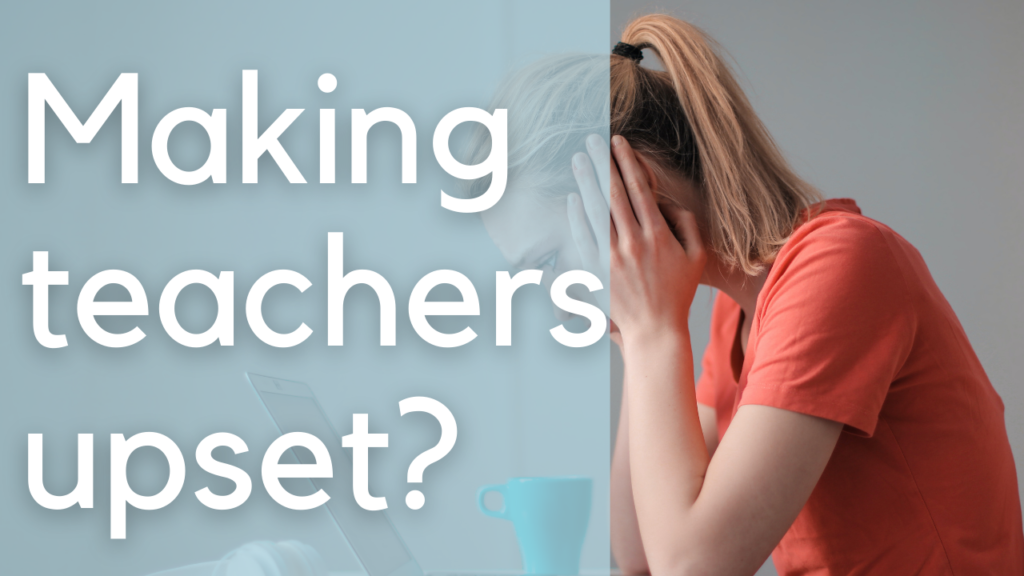
Have you had a teacher read what you wrote in an observation or in an evaluation and get upset? This has happened to most of us or maybe all of us. In this 7-minute video, I talk about the most common reasons I think this happens, and I share some ideas about how to make sure this doesn’t happen more often than necessary.

Do you find yourself trying to get work done and then getting distracted? In this 14-minute video, I explain how we can apply the concepts of mise en place, switchtasking, and friction to streamline our workflow and get our work done quickly and efficiently so we can focus on what matters most: supporting our teachers’ growth so they can support our students’ growth. Click here for ideas to streamline your workflow.
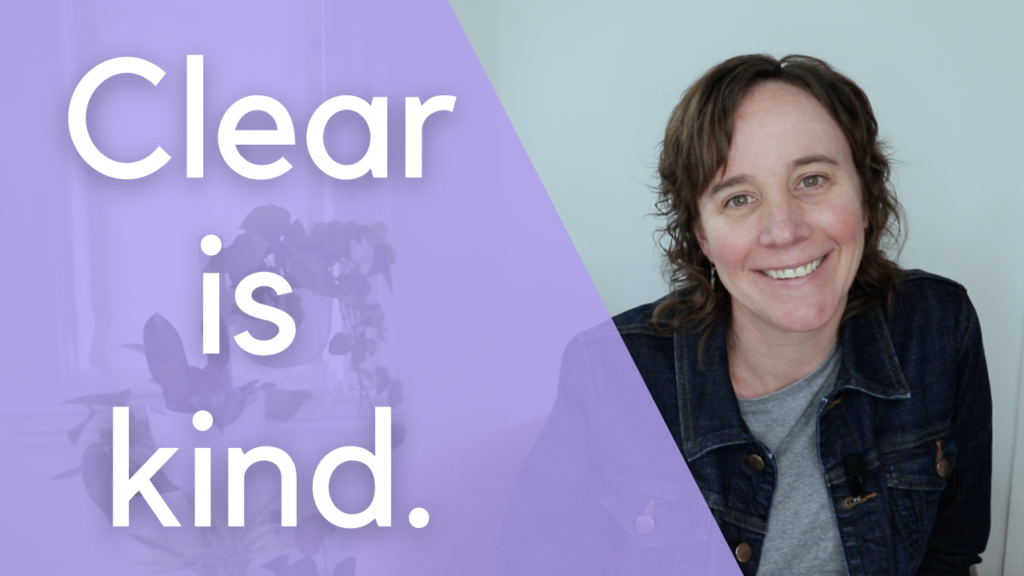
Many of you have seen Brené Brown’s Ted Talks on shame and vulnerability. She also has done great work on leadership. In this 7-minute video, I talk about Brené Brown’s wisdom that “clear is kind and unclear is unkind,” and I share three recommendations for how we can apply this idea in our work as leaders and teacher evaluators.
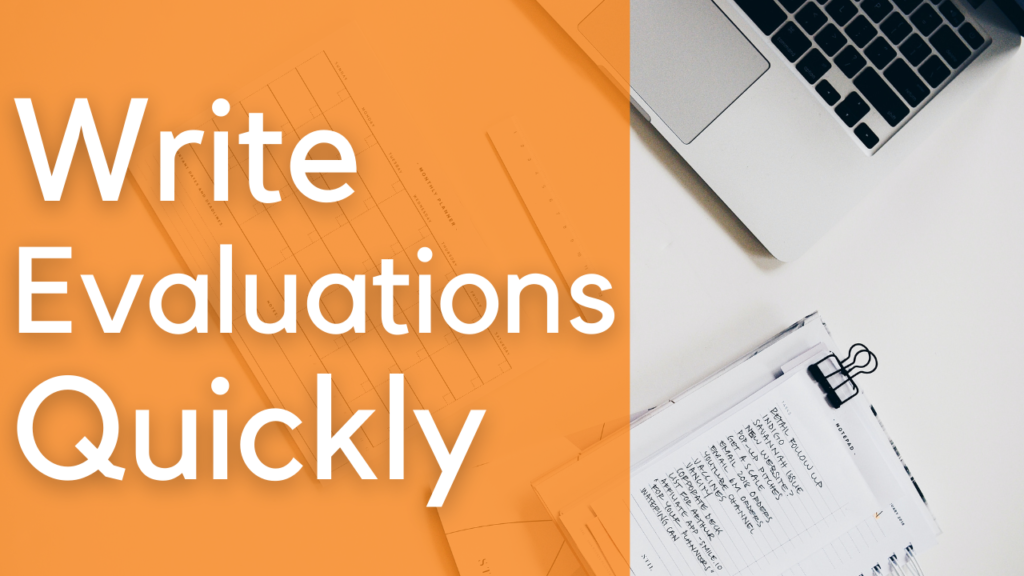
Do you want to write your evaluations quickly? In this 4-minute video, I will guide you through 6 steps of creating a template that you can use to write each of your evaluations quickly.
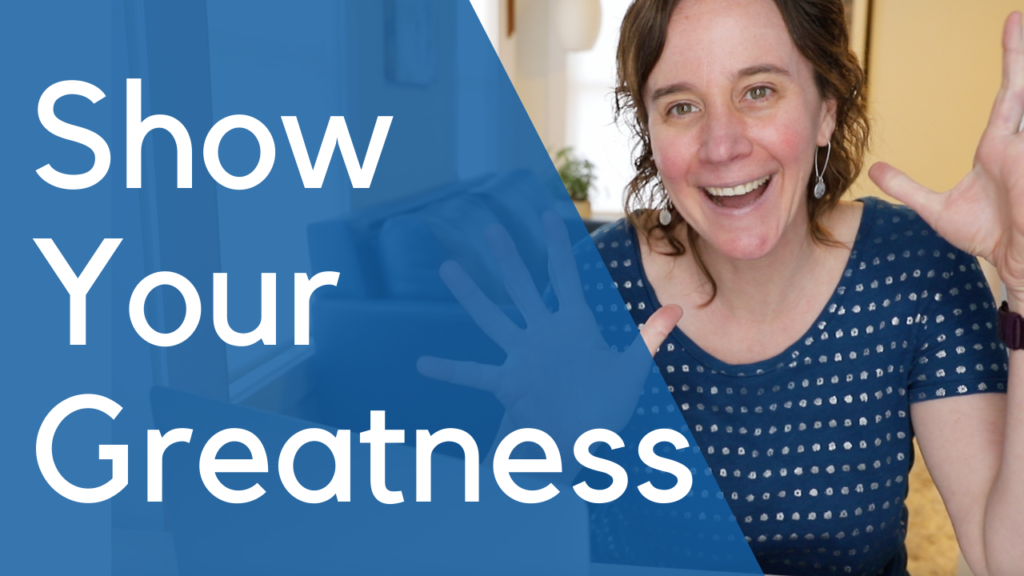
How can you show your greatness to your evaluator? In this 8.5 minute video, I explain how you can provide evidence for your own evaluation. I also include a template for teachers and a template for leaders and coaches.
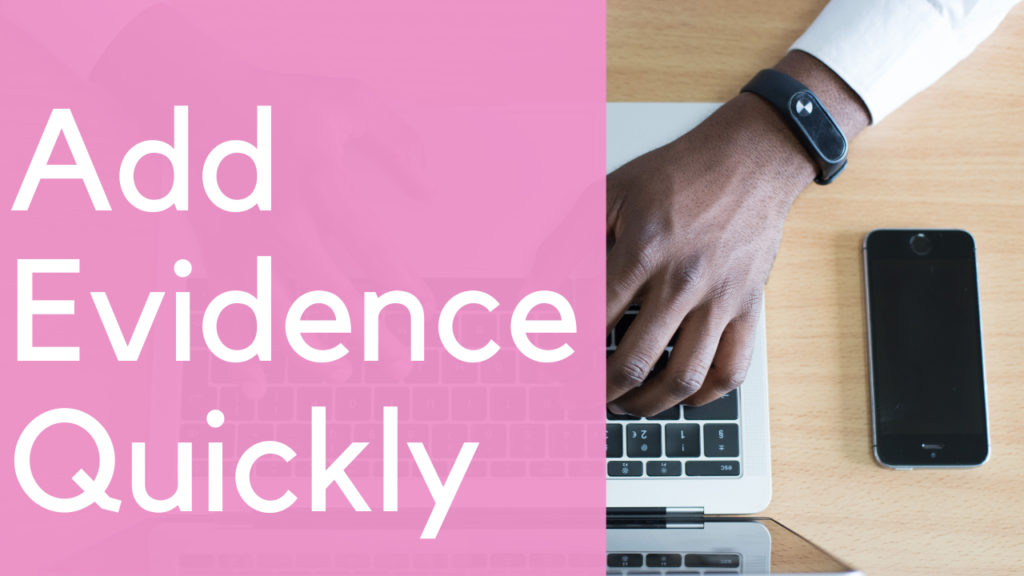
Need more evidence in your evaluations? In this 7-minute video, I describe two approaches to adding evidence quickly, which you can do solo or in collaboration with the teacher.
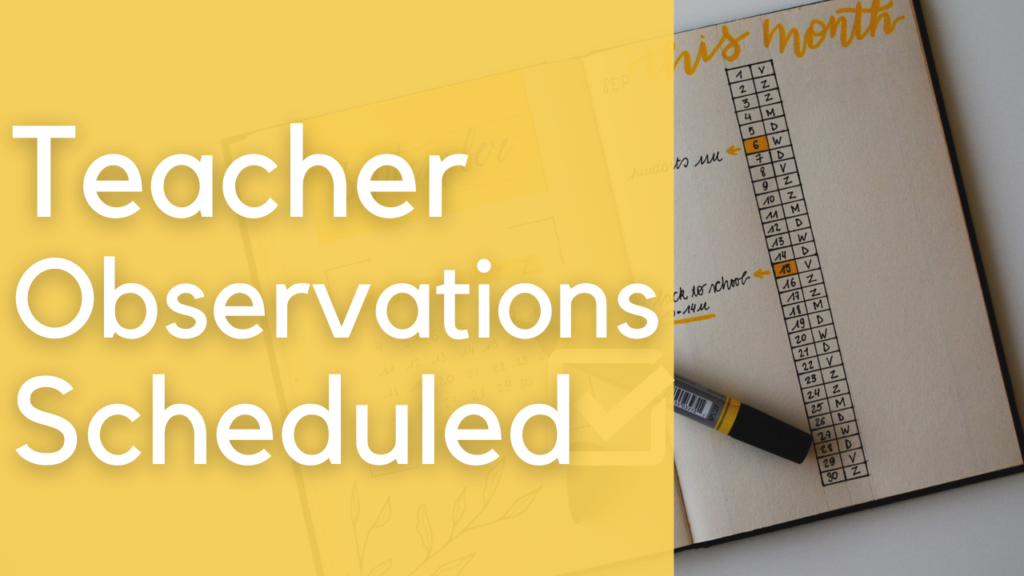
Behind on evaluations? In this 8-minute video, I explain different ways of scheduling and catching up on your observations quickly. Subscribe here so you stay in the loop!
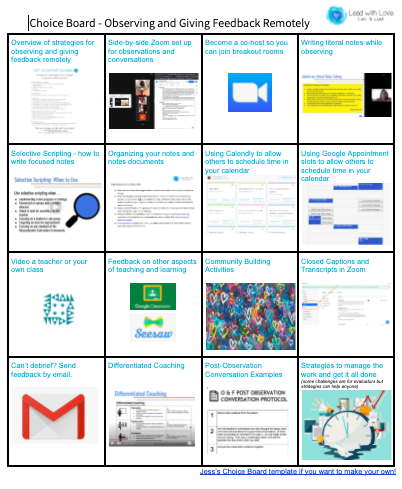
Check out my choice board about Observing and Giving Feedback Remotely